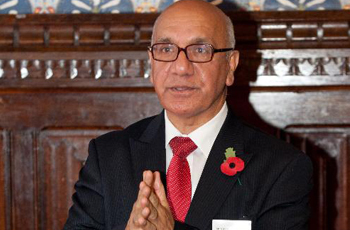London, Apr 7: British Prime Minister Boris Johnson was moved to the intensive care unit of a London hospital after his coronavirus symptoms worsened Monday, just a day after he was admitted for what were said to be routine tests.
Johnson was admitted to St. Thomas’ Hospital late Sunday, 10 days after he was diagnosed with COVID-19, the first major world leader to be confirmed to have the virus.
Downing Street said Johnson was conscious and did not require ventilation, but he was moved into intensive care in case he needs it later, his office said in a statement.
Britain has no official post of deputy prime minister, but Foreign Secretary Dominic Raab has been designated to take over should Johnson become incapacitated.
Hours earlier, Johnson tweeted that he was in good spirits and thanked the National Health Service for taking care of him and others with the disease.
“On the advice of my doctor, I went into hospital for some routine tests as I’m still experiencing coronavirus symptoms,″ Johnson said in the tweet. “I’m in good spirits and keeping in touch with my team, as we work together to fight this virus and keep everyone safe.″
The prime minister's spokesman said earlier Monday that Johnson had spent a comfortable night and remained in charge of government after being admitted to the hospital because his cough and fever persisted.
Johnson's spokesman, James Slack, refused to say what kind of tests Johnson was undergoing. He insisted that "the PM remains in charge of the government."
“He is receiving updates in hospital and is continuing to receive a (ministerial red) box" of files and briefing papers, Slack said.
Prime Minister Narendra Modi on Monday hoped that his British counterpart Boris Johnson, admitted to a hospital for treatment of coronavirus, finds himself in perfect health soon.
"Hang in there, Prime Minister @BorisJohnson! Hope to see you out of hospital and in perfect health very soon," the prime minister wrote on Twitter.
The 55-year-old leader had been quarantined in his Downing Street residence since being diagnosed with COVID-19 on March 26. He continued to preside at daily meetings on the outbreak until Sunday. He released several video messages during his 10 days in isolation urging Britons to stay home and observe social distancing measures to help slow the spread of the virus.
Speaking earlier at the government's daily coronavirus press briefing, Raab said Johnson was being “regularly updated," but said he had not spoken to him since Saturday.
“He's in charge, but he’ll continue to take doctors’ advice on what to do next," Raab said.
Politicians from all parties wished Johnson a quick recovery. Opposition Labour Party leader Keir Starmer tweeted: “Terribly sad news. All the country’s thoughts are with the Prime Minister and his family during this incredibly difficult time."
Johnson's fiancee, Carrie Symonds, who is pregnant, is herself recovering from coronavirus symptoms.
Johnson was admitted to the hospital as a message to the nation from Queen Elizabeth II was being broadcast Sunday evening. The 93-year-old monarch urged the public to show resolve and follow advice to stay inside.
Concerns had been growing about Johnson’s welfare ever since he posted a message Friday saying that he was feeling better, though was still feverish.
The virus causes mild to moderate symptoms in most people, but for some, especially older adults and the infirm, it can cause pneumonia and lead to death.
The government said Monday that 51,608 people had been confirmed to have the coronavirus in Britain, 5,373 of whom have died.
Derek Hill, a professor of medical imaging science at University College London, said that since COVID-19 causes difficulty breathing, one test performed on people with the disease is lung imaging with ultrasound or CT scans to see how badly they might be affected.
Hill said there are various types of breathing help, depending on the person and the difficulties.
“The reasons some people get seriously ill with COVID-19 while others have minor symptoms is not yet fully understood,″ Hill said. “But doctors managing these patients report that more men than women have serious problems, and patients who are overweight or have previous health problems are at higher risk."
 The 69-year-old Labour party MP has received several calls and letters on the issue from his constituents in the heavily Indian-origin area of Ealing, Southall, in south-west London.
The 69-year-old Labour party MP has received several calls and letters on the issue from his constituents in the heavily Indian-origin area of Ealing, Southall, in south-west London.




Comments
Add new comment